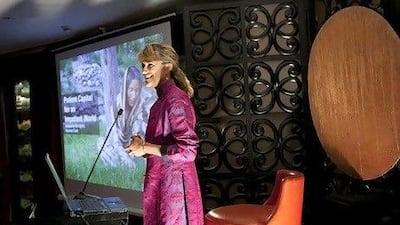Jacqueline Novogratz, is the founder and chief executive of Acumen Fund, which has invested US$60 million (Dh220.3m) in 57 enterprises in East Africa, Pakistan and India that have created more than 35,000 jobs.
While visiting a Dubai volunteer group that raises awareness for the fund, she talks about Acumen's successes and failures.
You describe your fund as patient capital. What does that mean?
Patient capital works between traditional aid and markets, and tries to take the best of both. It's money that's invested in entrepreneurs who know their communities and are building solutions to health care, water, housing, alternative energy and thinking of low-income people not as passive recipients of charity, but as individual customers, consumers, clients and individuals who want to make choices for themselves.
How do you attract investors?
Acumen Fund is organised as a 501(c)3 in the US, which means our partners receive a tax deduction for their donation. We have investors, although they don't receive a monetary return on their investments in the traditional sense of that term. Instead, they invest and become stakeholders in what we do because they want to share in our successes and learn from our failures.
How do you choose your investments?
We look for demonstration of clear social impact with the potential to reach millions of people. Currently, our portfolio areas include water, health, housing, energy and agriculture.
How do you ensure you carry out all the necessary due diligence in countries where you do not have people on the ground?
We think it's critical to have an office in every region in which we invest, as well as advisers from the local business community.
How risky are the projects you choose?
Our investments are almost always, by definition, risky. Often, our investees are creating entirely new business models and operating in highly underdeveloped markets. So they require patient, more flexible, capital to allow for experimentation and innovation as they grow.
Have you ever lost money on a project?
Yes, and in fact we view experimentation and failure as a necessary part of the learning process. This approach means that we have had several failed investments: a company with a promising technology that failed to think through distribution and marketing; a company with an exciting market for urban health care that failed to manage for growth and ran out of capital; a company that expanded its product offerings too quickly and became burdened with inventory and starving for cash. Each of these offered valuable lessons. As soon as you state that failure is not an option, you've just ruled out success as well.
What are the returns like?
We measure returns along both social and financial lines, and our investees are committed both to scaled social impact as well as financial sustainability. Financially, we seek to make back the money we've invested in our companies at a minimum.
* Gillian Duncan


